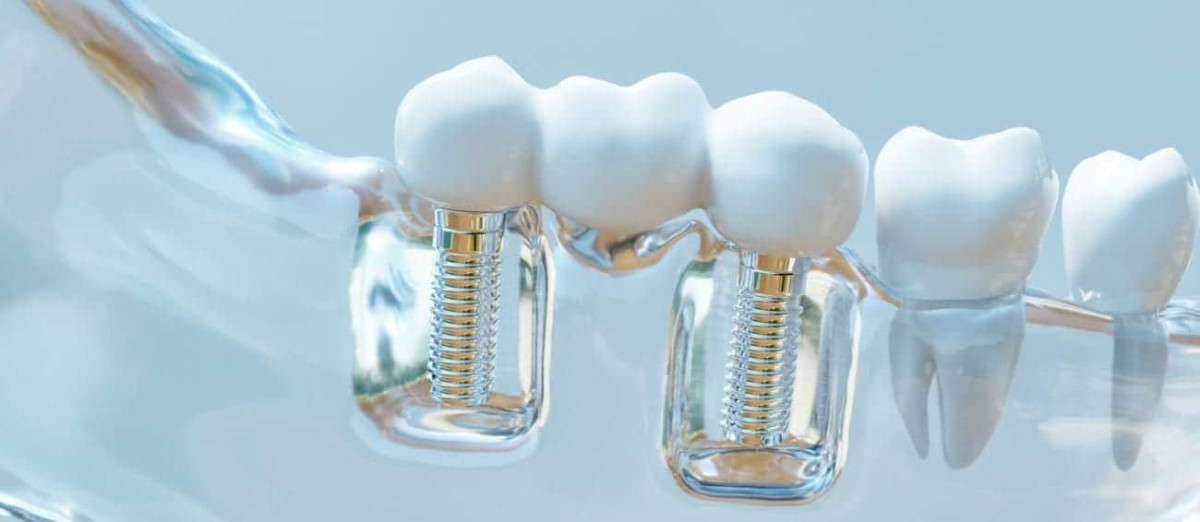Understanding Oral Operations: From Tooth Extractions to Dental Implants
Sterling, United States - May 22, 2025 / Ridgetop Dental Implants /
Oral health is a cornerstone of overall well-being, and sometimes, achieving or restoring it requires more than routine dental cleanings. Whether it’s due to trauma, disease, or congenital issues, oral operations play a critical role in treating complex dental conditions. Modern dentistry now combines traditional techniques with advanced measures such as oral surgery, ensuring patients benefit from the latest innovations in care. From tooth extractions and gum grafts to dental implants and corrective jaw surgery, these procedures help patients regain function, confidence, and a healthy smile.
In this comprehensive guide, we will explore various types of oral operations, the reasons they are performed, what to expect before and after surgery, and how Ridgetop Dental Implants can support your journey to optimal oral health.
Table of Contents
What Are Oral Operations?
Common Types of Oral Operations
Reasons for Oral Surgery
What to Expect Before an Oral Operation
The Day of Surgery: How to Prepare
Post-Operative Care and Recovery
Potential Risks and Complications
Why Choose Ridgetop Dental Implants?
FAQ: Oral Operations
Final Thoughts and Next Steps
What Are Oral Operations?
Oral operations are surgical procedures performed in or around the mouth and jaw. These procedures range from minor treatments such as tooth extractions to more advanced surgeries like dental implant placement or orthognathic (jaw) surgery. This approach represents the convergence of advanced dentistry and surgical precision.
Performed by oral and maxillofacial surgeons or highly trained dental professionals, oral surgeries aim to treat diseases, repair damage, enhance function, and improve aesthetics. Depending on the complexity, these procedures may be done in a dental office or surgical center. Your oral surgery team will be with you every step of the way to ensure a safe and effective procedure.
Common Types of Oral Operations
Here’s a breakdown of some of the most common oral surgeries and what they involve:
1. Tooth Extractions
Tooth extractions are among the most common oral operations. Reasons for extraction include:
Severely decayed teeth
Impacted wisdom teeth
Orthodontic preparation
Fractured or non-restorable teeth
2. Dental Implants
Dental implants replace missing teeth with titanium posts anchored into the jawbone. They offer a permanent, natural-looking solution and preserve bone health. In addition, dental implants help prevent further bone loss and maintain facial structure.

3. Bone Grafts
When bone volume is insufficient for dental implants, bone grafts may be necessary. This procedure adds bone material to the jaw, promoting regeneration and strength. Often, this process is referred to as dental bone grafting. It not only prepares the jaw for implants but also combats bone loss that can occur after missing teeth.
4. Gum Grafts
Receding gums due to periodontal disease or brushing habits can expose tooth roots. Gum grafts involve taking tissue (usually from the palate) and attaching it to the affected area.
5. Wisdom Teeth Removal
Impacted wisdom teeth can cause pain, infection, and crowding. Surgical extraction is often required to prevent complications. Most patients undergoing oral surgery for impacted wisdom teeth experience a smooth recovery with proper care.
6. Corrective Jaw Surgery
Also known as orthognathic surgery, this procedure addresses misaligned jaws that affect chewing, speech, and facial appearance.
7. Oral Biopsies
When suspicious lesions or abnormalities are found in the mouth, an oral biopsy may be performed to rule out oral cancer or other conditions.
Reasons for Oral Surgery
Oral operations are performed for a variety of medical, functional, and cosmetic reasons:
Infection or Abscess: Untreated decay or trauma can lead to infections that require surgical drainage or tooth removal.
Trauma: Injuries to the face or mouth may require reconstructive surgery.
Tooth Loss: Dental implants or bridges often involve surgical steps.
Tumors or Cysts: These may need to be removed surgically and sent for pathological analysis.
Orthodontic Support: Surgical tooth exposure or removal may support orthodontic treatment.
TMJ Disorders: In severe cases, surgery may be required to relieve temporomandibular joint dysfunction.
What to Expect Before an Oral Operation
Pre-operative preparation is crucial for a smooth surgical experience. Here’s what typically occurs:
Consultation: Your dental surgeon will assess your medical history, take X-rays or 3D scans, and discuss the procedure in detail.
Pre-Op Instructions: You’ll receive specific guidelines regarding fasting, medication adjustments, and hygiene.
Informed Consent: You’ll be briefed on potential risks, alternatives, and outcomes, and you’ll sign a consent form. During your consultation, you will also learn about the oral surgery process in detail.
The Day of Surgery: How to Prepare
Proper planning can minimize stress and complications:
Fasting: Avoid eating or drinking for 6–8 hours if sedation or general anesthesia will be used.
Comfortable Clothing: Wear loose, comfortable clothing with short sleeves for IV access.
Transportation: Arrange for someone to drive you home post-surgery.
Remove Jewelry and Contacts: These can interfere with surgical equipment or anesthesia.
Remember, the success of oral surgery greatly depends on following these preparation guidelines.
Post-Operative Care and Recovery
Your recovery process depends on the type and extent of the operation. Here are general guidelines:
Pain Management: Take prescribed medications as directed. Ice packs can reduce swelling.
Oral Hygiene: Rinse with warm salt water but avoid vigorous swishing. Brush gently around the surgical site.
Diet: Stick to soft foods (yogurt, soup, mashed potatoes) and avoid hot, spicy, or crunchy items.
Activity: Rest for at least 24–48 hours. Avoid strenuous activity for several days.
Proper rehabilitation is essential to a full recovery after oral surgery. Healing times vary—minor surgeries may take a few days, while implant surgeries or bone grafts can take several months.
Potential Risks and Complications
While oral operations are generally safe, complications can occur:
Infection: Follow hygiene guidelines and take antibiotics if prescribed.
Dry Socket: A painful condition that can follow tooth extraction, especially of the wisdom teeth.
Nerve Damage: Rare, but possible, especially with lower jaw surgeries.
Bleeding: Minor bleeding is common; however, persistent bleeding requires prompt attention.
Swelling or Bruising: Normal post-op symptoms, usually resolving in a few days.
Your dental surgeon will provide clear guidance on managing and recognizing potential problems.
FAQ: Oral Operations
1. Are oral operations painful?
Most procedures are performed under local anesthesia, sedation, or general anesthesia, so you’ll feel minimal to no pain during surgery. Post-op discomfort can usually be managed with over-the-counter or prescribed medications.
2. How long is the recovery period?
Recovery varies. Tooth extractions may heal in a week, while implants can take several months for complete osseointegration. Your dental surgeon will provide a specific timeline.
3. Can I go back to work after oral surgery?
For minor procedures, a day or two of rest is usually sufficient. More complex surgeries may require several days off. Always follow your provider’s recommendations.
4. What foods should I avoid after surgery?
Avoid crunchy, spicy, or hot foods that can irritate the surgical site. Stick to soft, cool foods for the first few days.
5. Will I need follow-up visits?
Yes. Follow-up visits ensure proper healing and allow the provider to address any complications early.
Final Thoughts and Next Steps
Oral operations, though sometimes intimidating, are vital for maintaining and restoring oral health. Whether you're undergoing a routine tooth extraction or considering advanced procedures like dental implants, being informed is your first step toward a successful outcome. With a strong focus on rehabilitation, our approach ensures you return to your daily life with minimal disruption.
Ready to Transform Your Smile?
Take the first step toward better oral health and a confident smile. Schedule your consultation today with Ridgetop Dental Implants and discover how our expert team can guide you through your oral surgery journey with care and precision.

Contact Information:
Ridgetop Dental Implants
21631 Ridgetop Cir Suite 240
Sterling, VA 20166
United States
Devika Rampure
https://ridgetopdentalimplants.com


